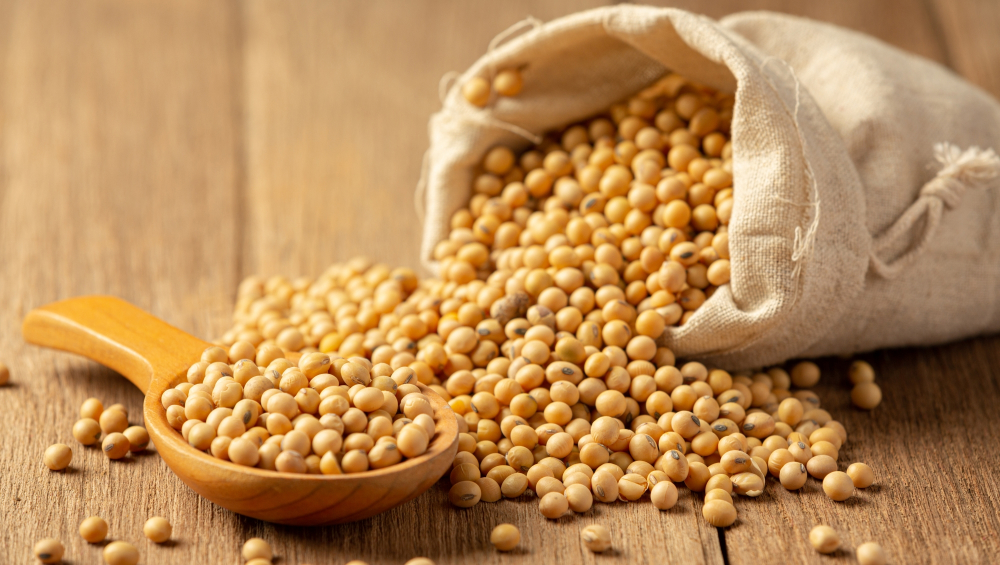About Soybean Futures
Soybean is a species of legume, classified as an oil crop by the UN’s Food and Agriculture Organization. It is a resource that has been cultivated for its value in oil extract, consumption, and animal feed.
The largest producers of soybeans are the United States, Brazil, Argentina, and China.
Given the large volume and usage of the soybeans, it eventually led to the creation of Soybean Futures.
These future contracts are fully electronic, exchanged, or traded between the producers of soybean and the involved investors. Ultimately, futures open pathways for hedging and profit-making both at once.

What Is An Example Of A Soybean Future Contract?
In order to assess the value of these contracts that are bought, brokering agencies, traders and investors can monitor price fluctuations or historical statistics by exchanges to determine when to trade.
In this example, the general upward trend of the contract suggests a possible opportunity to enter the market. The trade time for this contract is Sunday-Friday from 7:00 p.m. – 7:45 a.m. CT and Monday-Friday 8:30 a.m. – 1:20 p.m. CT.
Alternative Future Contracts
Like the cbot futures soybean and cbot soybean price tracking, Orient Futures International (Singapore) currently offer other forms of commodities that are open to the western market such as DCE Palm Olein Futures.
To gain access to information regarding various futures from the eastern market (Crude oil, Rubber, or Palm Olein) refer to the infographic here.
Additionally, traders can also look forward to the release of more products as the next emerging market. DCE is “looking to open its futures for soybean, soybean oil and palm oil to international participants”. The release of these commodity exchange contracts in the future will allow brokers to diversify services for all current customers within a single platform.
Hence, apart from the US futures, gaining access to the DCE exchange diversifies your trading opportunities. Being a registered overseas intermediary, Orient Futures International (Singapore) is one company that provides such opportunity.
Unlike Western only Future contracts, through internationalised brokers, all traders will be able to access both the Asian and international contracts for better trading opportunities.

Why Choose Soybean Futures?
The Soybean Futures trade has been a long present industry, most traders that are involved in the futures are familiar with the few main exchanges such as Chicago Board of Trade (CBOT), CME, NYMEX and COMEX.
Apart from these main exchanges, the rising Chinese demand and imports for Soybeans have also created more possible opportunities such as DCE within the high volume of future options.
Hence, given the established nature of the Soybean market, choosing Soybean Futures provides mature statistics that can be favourable for traders or producers.
How To Choose Soybean Futures?
Soybean Futures are affected by any effects on their planting, podding, or harvesting. Some of the main factors include the US dollar, emerging market demand or supply side factors. A study and research of these factors are crucial for all forms of contracts.
Apart from the general influence of these factors, the following are 3 other factors that will provide more knowledge and information on soybean futures:
Factors Affecting Soybean Futures:
1. Cost of Fertilizer
An important component for bountiful crop growth is the usage of fertilizers. Over the year of 2021 to 2022, fertilizer costs have nearly tripled over the past six to eight months, resulting in the increase of contract highs.
This increase of contract highs from fertiliser costs should be taken into consideration when determining a short or long position.
2. Mixed expectations and speculations
While market values provide an indication of trends, expectations and speculations can be disrupted by unexpected circumstances.
For the U.S. Cbot Soybean futures, the months of April, May and June 2022 show a much higher high and low in comparison to the previous year.
However, sources indicate a fall in long positions from 153,253 to 130,661 on May 10. This could be caused by the weather issues faced earlier in the year or the lack of demand. In general, nearby corn futures eased while crop futures firmed.
Overall, taking the Cbot Soybean Futures into account, determining the future prices of commodities require adequate research and are often subjected to change.
3. Crush Margin/ Crush Spread Margin
The crush spread margin is a term originating from the creation of the soybean and the soybean futures market.
It is used to refer to the combined value of soybean meal futures and soybean-oil futures subtracted by the value of the original soybeans.
Soybean futures investing often involves calculating the crush spread, which will allow traders to gauge the leftover profit margin and determine the next step of action.

Open a demo or live account at the following link: https://www.orientfutures.com.sg/trading-platforms
Access the Soybean Futures Market With Orient Futures Today
At Orient Futures, we provide traders and hedgers with access to the international futures market.
These include access to parts of the INE, DCE and ZCE exchanges through our platform.
We are an official MAS regulated broker as well as an official overseas intermediary, allowing traders to access a spectrum of futures and options in Chinese exchanges including the INE, DCE and ZCE.
With us, you can enjoy direct access to trading, clearing and settlement. Our parent company, Shanghai Orient Futures, is the largest broker in terms of aggregated volume across the five regulated exchanges in China.
Image credits:
https://www.freepik.com/free-photo/soybean-sauce-soybean-wooden-floor-soy-sauce-food-nutrition-concept_10400224.htm#query=soybean&position=0&from_view=search
https://www.freepik.com/free-photo/businessman-with-tablet-after-closing-deal_865922.htm#page=2&query=contract&position=6&from_view=search
https://www.freepik.com/free-photo/beautiful-shot-green-field-surrounded-by-high-mountains-cloudy-sky_17248586.htm#query=soybean&position=34&from_view=search
https://www.orientfutures.com.sg/resources/ck/images/blog/soybean-sauce-soybean-wooden-floor-soy-sauce-food-nutrition-concept%20(1).jpg




